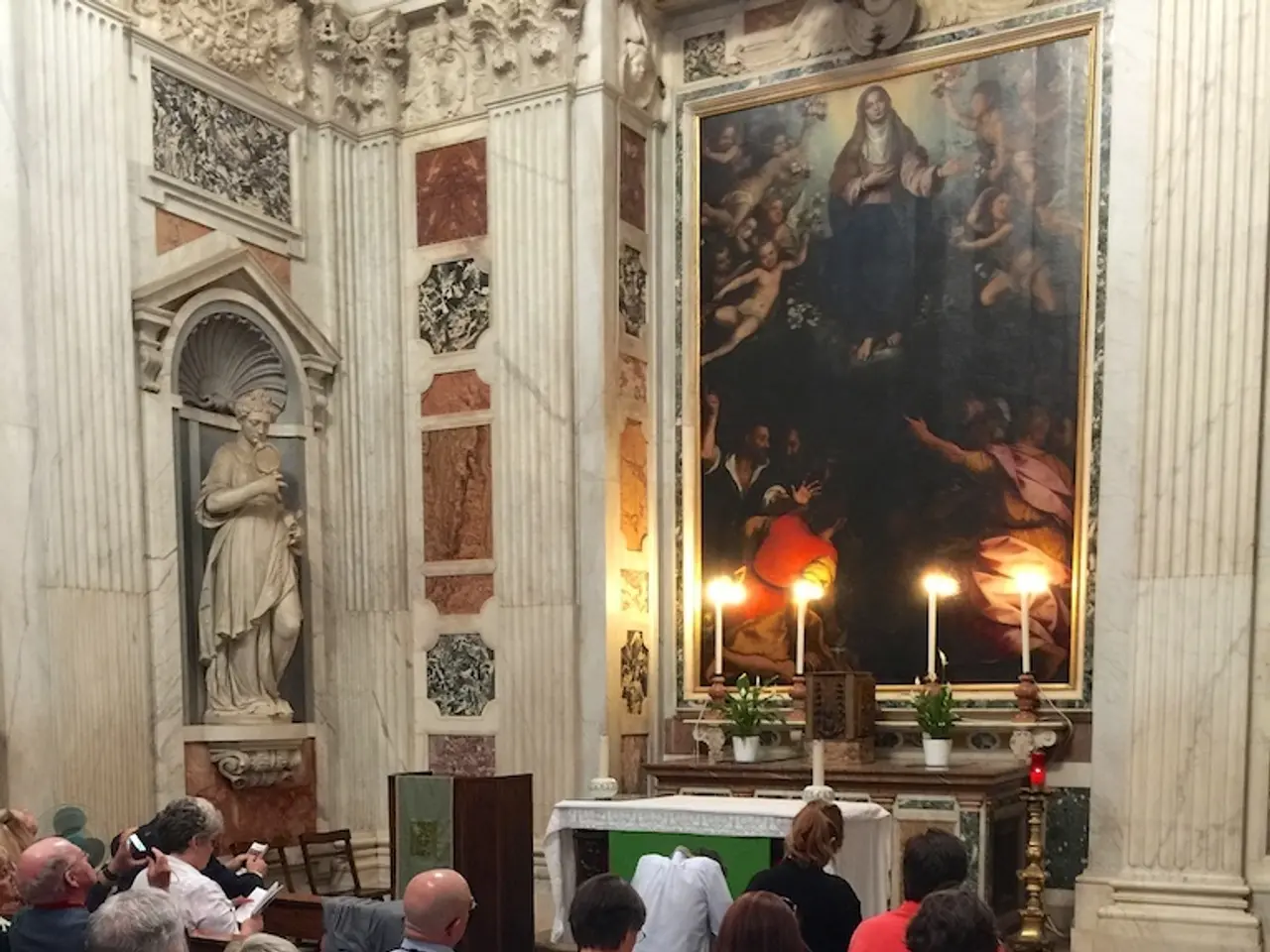Restoring Integrity: A Recovery Effort
The Oceti Sakowin, also known as the Dakota/Lakota people, have a rich cultural heritage that is deeply rooted in spirituality and ritual. These practices, gifted to them by White Buffalo Calf Woman, serve as a critical tool in resisting settler colonialism and permeate every aspect of their lives.
One of the most significant rituals is the Wiwáŋyaŋg Wačhípi, or Sundance, which is considered the most important ritual of the Oceti Sakowin. This ritual involves fasting, praying, and piercing without food or water. It symbolises the endurance and resilience of the people, reflecting their historic struggles and their unwavering spirit.
Another essential ritual is Haŋbléčheyapi, where participants seek spiritual insight by sitting in isolation for four days. This ritual is a test of one's strength and willpower, providing a space for introspection and connection with the divine.
The Oceti Sakowin also practice rituals like Huŋkálowaŋpi, a ritual for adopting new family members, and Išnáthi Awíčhalowaŋpi, a Coming of Age ritual for girls after their first menstrual cycle. These rituals help strengthen community ties that have been affected by settler colonialism.
Running, for the Oceti Sakowin and some modern runners, is also considered a ritual and a form of ceremony. Running outside is a spiritual experience due to the connection with nature, while the process of running, including preparation, execution, and recovery, is ritualized for many runners. Running is a source of healing and improves physical, mental, emotional, and spiritual wellbeing. It helps decrease anxiety and alleviate occasional moments of depression, making it a way to cope with various issues, including rage, stress, and anxiety.
The Throwing of the Ball ritual, performed by the Oceti Sakowin, symbolically represents humanity's connection to all things. A red ball in the ritual connects heaven and Earth through a single human being.
In addition, the Inípi Rite of Purification is a ritual performed in a hot, steamy, sweat lodge, symbolizing Mother Earth's womb. This ritual is a means of purification and renewal, providing a space for spiritual growth and healing.
Wanáǧi Yuhápi is a ritual for coping with grief and loss, involving cutting hair in a sacred manner and releasing the soul of the deceased after a year. This ritual provides comfort and closure, helping the community and individuals heal from loss.
Embracing healthy rituals is a critical tool in fighting settler colonialism, as it allows the Oceti Sakowin to maintain their cultural identity and resist assimilation. For modern runners, incorporating ritual into their running practice can provide a deeper connection to their sport and themselves.
People have unlimited potential to access what is holy from within, and these rituals serve as a means to tap into that potential. Whether it's running, participating in a traditional ceremony, or finding a personal ritual, the power of ritual lies in its ability to connect us to something greater than ourselves.








